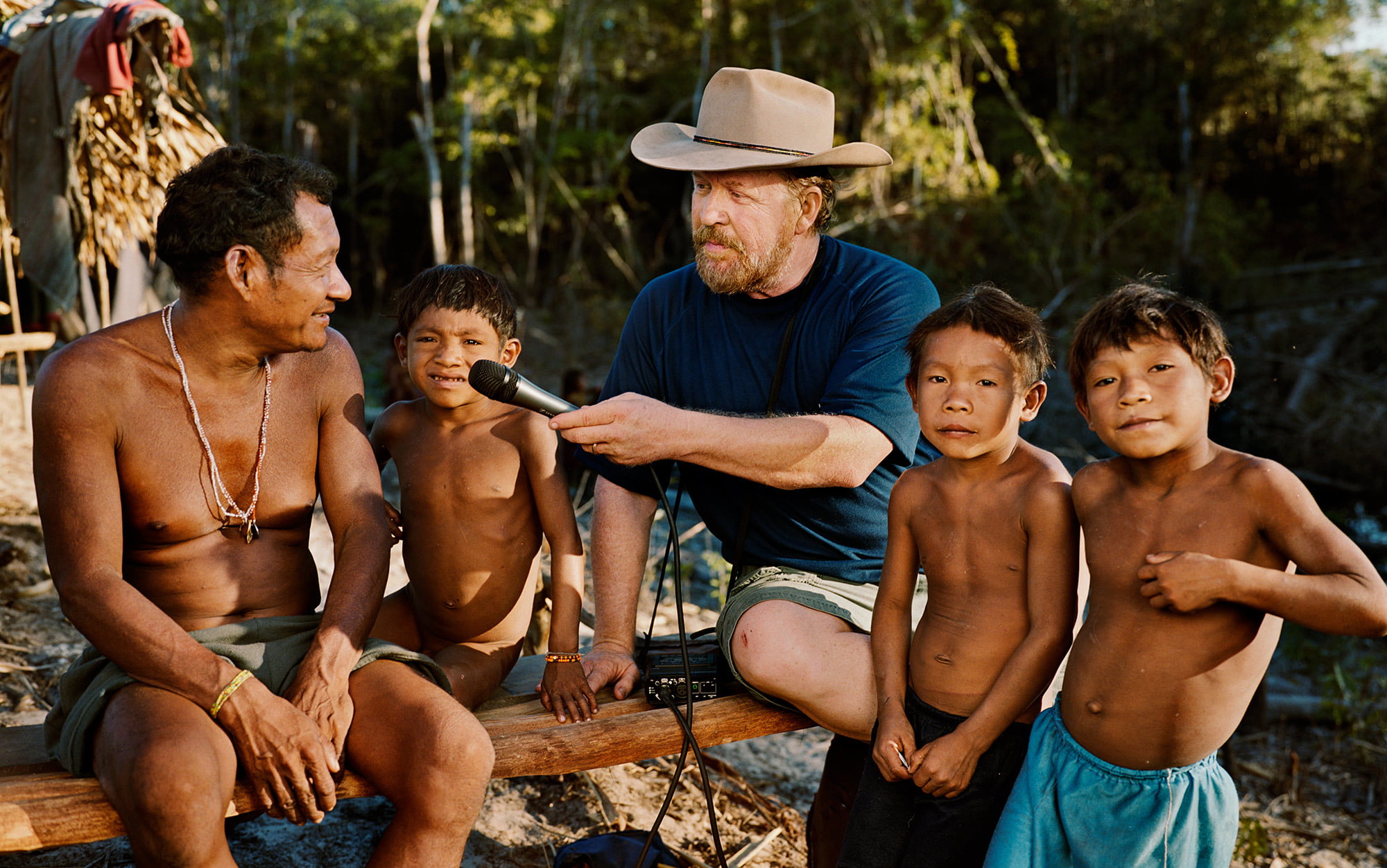In 1977, Daniel Everett came to Amazonia to live and study the tribe Pirahã. When he originally came to the tribe, members of the tribe wanted to kill him. They plotted their murder. But what they didn’t know is that he was a damn good linguist, and while he was eavesdropping, he could understand enough of their cacophonic singsong to make out the decisive words.
What Everett did next was to lock his wife and three children in a reasonably safe shed of the hunt, and went to the men of the tribe. He took their bows and arrows, disarmed them, and earned their trust and respect. They let him live.
When he first came to live among the Pirahã people, he came to convert them. Instead, they converted him. His mission was to serve as a Bible translator for the Wycliffe missionary organization. Few years after his arrival, he understood their culture, and abandoned his mission to live as a happy person. Nowadays, the Pirahã people are known as the happiest tribe in the world. Why? Let’s talk.
Who are the Pirahã people?
The Pirahã people are a small hunting and gathering tribe. They live along the coast of the river Amazon, and have a population between 300 and 400.
They are known as the people of the Maici river, and as the Happiest Tribe in the world. Depending whether it is a rainy or dry season, the communities can vary. For example, during the rainy season, there were only 20 people in the community Everett lived. But when the dry season came, there were 80 people.
The tribe members canoe up and down the Maici river, and visit all the time. They live up to 10 days apart by canoe. Their tribe is positioned some four day boat ride from Porto Velho, Brazil. They are isolated, living right at the edge of the river.
The first mention of the Pirahã people is by a Portuguese missionary back in 1784.
Why happiest tribe in the world?
Simplicity is the answer why the Pirahã people are called the happiest tribe in the world. Simply put, they do not stress about anything non-important. And it is all thank to their language. Here are some quick facts.
– They cannot count and they know only 2 numbers, which are “some” and “many”
– They know only 2 colors, “dark” and “light”
– The Pirahã people know neither dates nor calendars
– They eat just 1 or 2 times per day
– The Pirahã people sleep from time to time for 20 minutes, believing that sleeping for a long time deprives them of powers
– There are only 3 degrees of a relationship, which are a baby, a parent, and a sibling
– There is no hierarchy, no theft, no crime
– The Pirahã have no property or prejudices
– They sing during the night and believe dreams and reality are equally important
– Once in every 7 years, they change their names
The Simplicity of their language
As mentioned, one of the reasons why they are so happy is the simplicity of their living. And by that, we refer mostly to the simplicity of their language.
They use only three pronouns, and hardly use any words associated with time. There are no past tense verb conjugations. One of the unique features of the language is there is no subordinate clauses. For example, they do not say “When I have finished eating, I would like to speak with you”. Instead, they will use “I finish eating. I speak with you”.
Speaking of numbers, they have no need for numbers. They never say words like “all”, “every”, or even “more”. They do not get the concept of numbers. They have two words, one for “some” and “many. The word “hoi” described a relatively small amount. In a study by Columbia University in New York, they were asked to repeat patterns created with between 1 and 10 small batteries. They did not get the concept. The theory suggested that “people without terms for numbers does not develop the ability to determine exact numbers”.
Back in the days, Everett tried to teach them to count. He used numbers used by Brazilians, but after one year, not a single person could count to ten.
In the end, it is all about their simple culture formula. And that is “live here and now”. The only thing of importance is what is being experienced at the very moment. With that in mind, they do not have a creation myth explaining existence. According to their believes, “everything is the same, things always are”. If something is not important in the moment, it is easily and quickly forgotten. That is why very few members of the tribe can remember the names of their grandparents.
In a way, they are the perfect epitome of the “Hakuna Matata”. Do not worry, for the rest of your days. Live in the moment.
